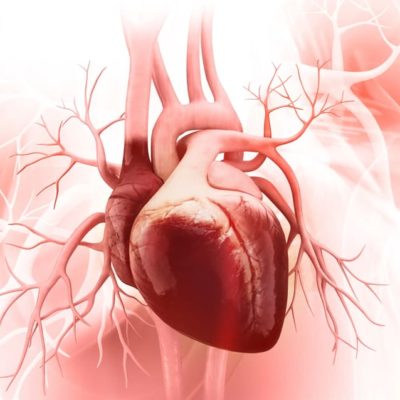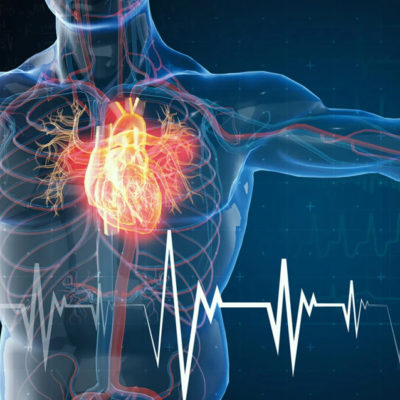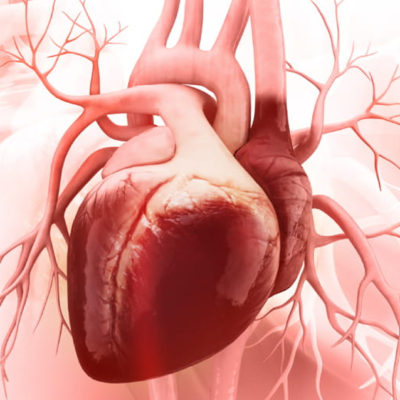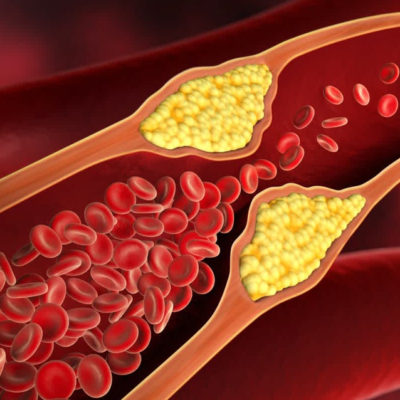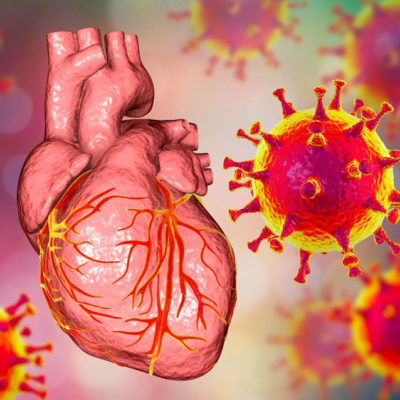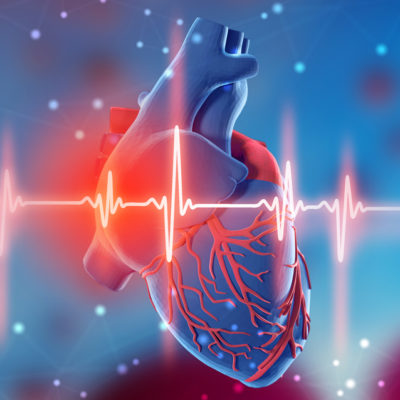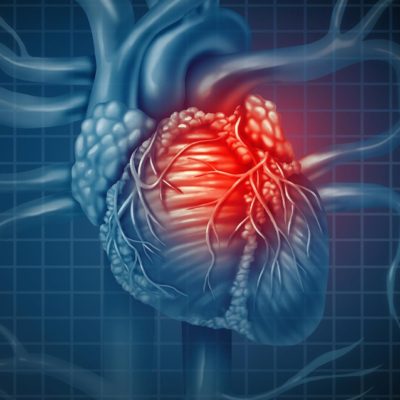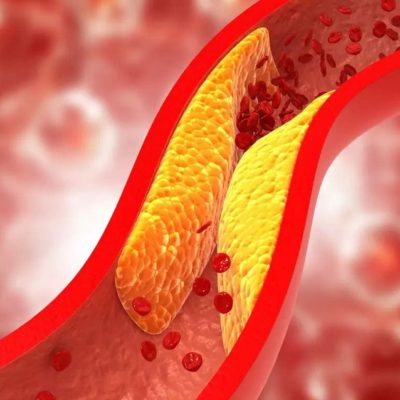The study, published in Journal of the American Heart Association, uses data from the SCAPIS population study, which is based at the University of Gothenburg, with the Swedish Heart Lung Foundation as its main sponsor. The study was led by Göran Bergström, Professor of Clinical Physiology at Sahlgrenska Academy at the University of Gothenburg, senior physician at Sahlgrenska … [Read more...]
Cardiovascular Health News

Study Reveals how ‘Forever Chemicals’ may Impact Heart Health in older Women
New research from the University of Illinois Urbana-Champaign has linked multiple types of per- and polyfluoroalkyl substances (PFAS, also known as "forever chemicals") with increased risk of cardiovascular diseases in postmenopausal women. Specifically, the study reveals how PFAS chemicals interact with pro-inflammatory pathways in older women, providing potential explanations … [Read more...]
Cardio-Fitness Cuts Death and Disease by Nearly 20%
Running, cycling, or swimming -- if you regularly exercise, you're well on track for a long and healthy life, as groundbreaking new research from the University of South Australia finds that an increased cardio fitness level will reduce your risk of death from any cause by 11-17%. Published in BJSM, the study found that for every 1-MET increase in cardiorespiratory fitness … [Read more...]
Anxiety and Depression Could Offer an Early Warning of Cardiovascular Risk
Younger women are generally thought to have a low risk of heart disease, but new research urges clinicians to revisit that assumption, especially for women who suffer from certain mental health conditions. A new study being presented at the American College of Cardiology's Annual Scientific Session found that having anxiety or depression could accelerate the development of … [Read more...]
Flexitarian Diet Linked to Lower Cardiovascular Risk, Study Finds
A new study published in BMC Nutrition examines the cardiovascular risk associated with different dietary patterns. About the study Study participants between 25 and 45 years old were divided into three groups. The first group comprised long-term flexitarians (FXs) who ingested 50 grams of meat or meat products each day, whereas the second group consisted of vegans who … [Read more...]
Key to Healing Injured Hearts
A groundbreaking scientific study published in Nature Cardiovascular Research has unveiled a remarkable discovery that may have far-reaching implications for the treatment of heart disease. The intensive investigations utilizing single-cell genomics and genetic experiments were conducted by a team of scientists in theCardiomyocyte Renewal Laboratory and McGill Gene Editing … [Read more...]
Reduced Blood Lead Levels Linked to Lower Blood Pressure
Through the Strong Heart Family Study, National Institutes of Health-supported researchers found that small declines in blood lead levelswere associated with long-term cardiovascular health improvements in American Indian adults. Participants who had the greatest reductions in blood lead levels saw their systolic blood pressure fall by about 7 mm Hg, an amount comparable to the … [Read more...]
Elevated Pregnancy Blood Pressure may Leave Lasting Marks on the Heart
New research from the Smidt Heart Institute at Cedars-Sinai found that women who developed signs of elevated blood pressure during pregnancy were more likely to have residual evidence of abnormal heart structure and function up to a decade after the pregnancy. "This study helps to clarify that, for some women, pregnancy is not just a 'stress test' that unmasks underlying … [Read more...]
Benefits of Adolescent Fitness to Future Cardiovascular Health Possibly Overestimated
There is a well-known relationship between good physical fitness at a young age and a lower risk of cardiovascular disease later in life. However, when researchers adjusted for familial factors by means of sibling analysis, they found a weaker association, although the link between high body mass index (BMI) and cardiovascular disease remained strong. The study, which was … [Read more...]
Measuring Long-Term Heart Stress Dynamics with Smartwatch Data
Biomedical engineers at Duke University have developed a method using data from wearable devices such as smartwatches to digitally mimic an entire week's worth of an individual's heartbeats. The previous record covered only a few minutes. Called the Longitudinal Hemodynamic Mapping Framework (LHMF), the approach creates "digital twins" of a specific patient's blood flow to … [Read more...]
Not Getting Enough Sleep? Your Vascular Cells are Drowning in Oxidants
Does this sound like you? You wake up at the same time each morning, get the kids out the door, and rush to catch the subway to work. But at night, maybe you stay up until midnight doing laundry or 1 a.m. to catch up on the bills. Lots of Americans -- about one-third of us -- are in the same situation and habitually get only five to six hours of sleep instead of the … [Read more...]
Increasing Steps by 3,000 Per Day can Lower Blood Pressure in Older Adults
A new study including Linda Pescatello, distinguished professor of kinesiology in UConn's College of Agriculture, Health and Natural Resources, found that adding a relatively minimal amount of movement, about 3,000 steps per day, can significantly reduce high blood pressure in older adults. Pescatello worked with Elizabeth Lefferts, the lead author of the paper, Duck-chun … [Read more...]
Cold Weather may Pose Challenges to Treating High Blood Pressure
According to the American Heart Association's 2023 Statistical Update, nearly half of adults in the U.S. have high blood pressure. Previous research found that blood pressure varies with the seasons of the year. Most of this variation is in systolic blood pressure -- the top number in a blood pressure reading that gauges the pressure in/against blood vessels during heartbeats. … [Read more...]
Prescription For Fruits, Vegetables Linked to Better Heart Health, Food Security
Produce prescription programs enable doctors to prescribe fruits and vegetables in addition to medications. Patients receive electronic cards or vouchers to access free or discounted produce of their choice at retail grocery or farmers' markets, explained study lead author Kurt Hager, Ph.D., M.S., an instructor at UMass Chan Medical School in Worcester, … [Read more...]
Drug to Target Form of Previously Untreatable Life-Threatening “Bad Cholesterol”
A new drug offers a breakthrough world first treatment for Lipoprotein(a), a largely genetic form of cholesterol that increases the risk of heart attack and stroke, announced today by study lead Professor Stephen Nicholls, Director of the Monash University's Victorian Heart Institute and Victorian Heart Hospital. High levels of Lipoprotein(a), known as Lp(a) or spoken as … [Read more...]
AI to Predict your health later in life — all at the press of a button
Thanks to artificial intelligence, we will soon be able to predict our risk of developing serious health conditions later in life, at the press of a button. Abdominal aortic calcification, or AAC, is a calcification which can build up within the walls of the abdominal aorta and predicts your risk of developing cardiovascular disease events such as heart attacks and … [Read more...]
How The Flu Virus Hacks Our Cells
Influenza viruses represent a major risk to human and animal health. Their potential for mutation makes them particularly elusive. ''We already knew that the influenza A virus binds to sugar structures on the cell surface, then rolls along the cell surface until it finds a suitable entry point into the host cell. However, we did not know which proteins on the host cell surface … [Read more...]
Women Twice as Likely to Be Re-hospitalized After Heart Attack
Women under 55 are twice as likely as men to be hospitalized again within a year after a heart attack, the National Institutes of Health reported this week. The NIH said in a news release that the disparity is likely the result of higher rates of obesity, heart failure, depression and other risk factors among women. The study was paid for by the National Heart, Lung, and … [Read more...]
Non-Biological Factors and Social Determinants of Health Important in Women’s CVD Risk Assessment
"Risk assessment is the first step in preventing heart disease, yet there are many limitations to traditional risk factors and their ability to comprehensively estimate a woman's risk for cardiovascular disease," said Jennifer H. Mieres, M.D., FAHA, vice chair of the scientific statement writing committee and a professor of cardiology at the Zucker School of Medicine at Hofstra … [Read more...]
Does The Risk of Stroke From Common Risk Factors Change as People age?
"High blood pressure and diabetes are two important risk factors for stroke that can be managed by medication, decreasing a person's risk," said study author George Howard, DrPH, of the University of Alabama at Birmingham School of Public Health. "Our findings show that their association with stroke risk may be substantially less at older ages, yet other risk factors do not … [Read more...]
Black tea (and other favorites) may help your health later in life
A daily cup of tea could help you to enjoy better health late in life -- however if you're not a tea drinker, there are other things you can add to your diet. The key is flavonoids, which are naturally occurring substances found in many common foods and beverages such as black and green tea, apples, nuts, citrus fruit, berries and more. They have long been known to have … [Read more...]
Which Grains you Eat can Impact Your Risk of Getting Heart Disease Earlier
In one of the first studies to examine the relationship between different types of grain intake and premature coronary artery disease in the Middle East, researchers found a higher intake of refined grain was associated with an increased risk of premature coronary artery disease in an Iranian population, while eating whole grains was associated with reduced risk. The study will … [Read more...]
New Survey: 91% of Parents Say their family is less stressed when they eat together
Chronic, constant stress can increase lifetime risk of heart disease and stroke, but a new survey from the American Heart Association, a global force for longer, healthier lives for all, reveals regular mealtime with others could be a simple solution to help manage stress. Of the 1,000 U.S. adults nationwide surveyed in September 2022 for the American Heart Association's … [Read more...]
Better Screening Could Predict and Prevent Sudden Cardiac Death in Young People
Nearly nine in ten cases of sudden cardiac death (SCD) due to hypertrophic cardiomyopathy (HCM) in young people are preceded by symptoms, ECG abnormalities or a positive family history, according to a new study published this week in the open-access journal PLOS ONE by Erik Börjesson of Sahlgrenska University Hospital, Sweden, and colleagues. Those findings suggest that … [Read more...]
Benefits of Statin Therapy Highlighted
Stopping statin treatment early could substantially reduce lifetime protection against heart disease since a large share of the benefit occurs later in life. That's the finding of a modelling study presented at ESC Congress 2022.1 Lead author Dr. Runguo Wu of Queen Mary University of London, UK said: "The study indicates that people in their 40s with a high likelihood of … [Read more...]
Daily Avocados Improve Diet Quality, Help Lower Cholesterol Levels, Study Finds
Eating one avocado a day for six months was found to have no effect on belly fat, liver fat or waist circumference in people with overweight or obesity, according to a new study. However, it did lead to a slight decrease in unhealthy cholesterol levels. In the randomized trial, the team -- including Penn State researchers -- also found that participants who ate avocados had … [Read more...]
About 3 Grams a Day of Omega-3 Fatty Acids may Lower Blood Pressure, More Research Needed
About 3 grams daily of omega-3 fatty acids, consumed in foods or supplements, appears to be the optimal daily dose to help lower blood pressure, according to a research review published today in the Journal of the American Heart Association, an open access, peer-reviewed journal of the American Heart Association. Omega-3 fatty acids docosahexaenoic acid (DHA) and … [Read more...]
Obesity Significantly Increased Heart Failure Risk Among Women with Late Menopause
A woman's body produces less estrogen and progesterone after menopause, changes that can increase the risk for cardiovascular diseases including heart failure, according to the American Heart Association. Menopause typically occurs between the age of 45 and 55, however, the average age for natural menopause has increased by 1.5 years over the past six decades, according to some … [Read more...]
Exercise Holds Even More Heart Health Benefits for People with Stress-Related Conditions
The research findings add to mounting evidence that exercise improves cardiovascular health by helping to activate parts of the brain that counteract stress. Overall, the study found that people who achieved the recommended amount of physical activity per week were 17% less likely to suffer a major adverse cardiovascular event than those who exercised less. These benefits were … [Read more...]
COVID-19 Infection Linked to Higher Risk of Neuropathy
In a study of more than 1,500 people who were tested for SARS-CoV-2 during the first year of the pandemic, the researchers found that those who tested positive for the virus were about three times more likely to report pain, numbness or tingling in their hands and feet as those with negative tests. The findings are reported online March 24 in the journal Pain. "Several … [Read more...]
- 1
- 2
- 3
- …
- 35
- Next Page »



